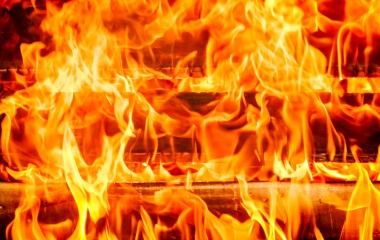
“How do we know that one who sees something unseemly in his friend, that he must rebuke him? Because it says (Vayikra 19:17), ‘You shall rebuke, rebuke, amitecha, your friend’” (Erachin 16b). While on the surface this seems like a straightforward question and answer, it is in fact much more. It is not, for good reason, the practice of the Gemara to ask, “how do we know” that which is explicitly mentioned in the Torah. If it were to do so, then one might also ask, “How do we know one must observe Shabbat, fast on Yom Kippur, refrain from wearing shaatnez, or not talk lashon hara?” The list would be at least 613 questions long.
The Gemara does not do so as there is no need for such simplistic questions. It expects its students to be conversant in the Torah. So confident were the rabbis that the average Jew knew the contents of the Torah that the contours of the mitzvah of rebuke itself change, depending on whether one is violating a mitzvah specifically mentioned in the Torah or one whose origin is found in the Oral Law. Only in the case of the latter do we invoke the legal principle that, “It is better they should be unwitting sinners, than witting sinners” (Beitzah 30a) such that if one suspects the person will not listen to the rebuke, we should not give it. It is assumed that mitzvot written in black and white in the Torah, e.g., do not eat pork, are well known to all and hence, a violator cannot be said to be sinning unknowingly and should be rebuked.
Alas, such is no longer the case and many mitzvot written in the Torah remain unknown to large segments of world Jewry who, in any event, could care less whether something they are about to do is forbidden by the Torah. While sin has always been common, many today deny the entire concept of sin in anything relating to one’s personal life.
The Gemara does not and would not ask the source of the biblical obligation to rebuke. That is obvious. The Gemara is asking, the Anaf Yosef explains, how we know that the mitzvah to rebuke applies to each and every Jew and is not a job for rabbis, teachers and parents only? The Torah rejects the idea that for rebuke to be effective, it must come from a person of authority. And how do we know that, the Gemara asks? From the verse, “You shall rebuke, rebuke your amitecha, your friend,” teaching us that the relationship between the rebukee and rebuker makes no difference. Even a person of lower status may rebuke a person of higher status. “In the place where there is a desecration of the Name, we do not give honour to the master”. So much so that a child may even rebuke a parent. It must be done very carefully, but if needed, it must be done.
The Torah expects that we separate the person from the problem. If we are doing something wrong, it should make no difference who points that out. “Accept the truth from wherever it comes” (Rambam, Introduction to Pirkei Avot).
Alas, that is not the case, not now and perhaps not ever[1]. “Rabbi Tarfon said: I wonder if there is anyone in today’s generation willing to accept rebuke. If one says, ‘Remove the splinter from between your eyes, the other will respond, ‘Remove the beam from between your eyes’” (Erachin 16b). When one magnifies the faults of others and minimizes one’s own, it is not possible to listen to critique.
Yet even if one is open to hearing rebuke, a rare quality indeed, such must be given with great tact. Rebuke must be given with love and care, so that the one on the receiving end feels it is being done sincerely and constructively. And few, if any, can truly do that. “Rabbi Elazar ben Azaria said: I wonder if there is anyone in today’s generation who knows how to give rebuke”. If no-one can accept rebuke and no one can give rebuke, we have effectively done away with a mitzvah in the Torah. That is something that did not sit well at all with Rav Yochanan ben Nuri, who recounted, “I call the heavens and the earth as witnesses before me that Akiva was lashed many times on my account, as I would complain about him before Rabban Gamaliel Beribbi”. This may be a difficult mitzvah all around, but great people can still fulfil it, and it is by fulfilling it that they become even greater. “’And all the more so I [by giving rebuke] increased his love for me’. This serves to affirm that which is stated: ‘Do not rebuke a scorner, lest he hate you; rebuke a wise man, and he will love you’” (Mishlei 9:8).
The discussion above is referring to individuals, with one person giving rebuke to another. Such today is difficult, if not impossible, to properly do. However, when dealing with the community at large, rebuke is a necessary component. As a community, we need to be told of areas in need of improvement. This is not a job for amitecha, one’s friend, but for people of great integrity, honour and sensitivity. This is one of the primary jobs of a rabbi and one our generation needs no less, and perhaps more, than others.
In a fascinating teshuva, Rav Moshe Feinstein (Orach Chaim 2, #36) was asked whether, knowing that most people will ignore him, should a rabbi announce before tekiat shofar that one should not talk until shofar blowing has ended, i.e., at the conclusion of mussaf. Rav Moshe notes that informing and urging people to follow halacha is part of the job description of a rabbi. To say otherwise would effectively mean one could never give mussar to a congregation. Furthermore, Rav Moshe notes, even if only one person in the entire shul will actually listen to the rabbi (sad but very possibly true), one has accomplished something with his rebuke. The fact that A (and B-Y) won’t listen is no excuse not to tell Z what is proper behaviour. And while many may continue talking, reasonable people understand that such is the job of the rabbi (or better yet, the gabbai).
Living in a generation in which no one likes to be told what to do—“this is a free country”—admonishing others is generally counter-productive. The best way to influence others to do better is to lead by example.
[1] While Rabbi Tarfon notes that rebuke is not accepted “today”, that does not mean it was accepted “yesterday”. The assumption that “our generation” is the first to do something lends an important rhetorical flourish, but is usually inaccurate—“there is nothing new under the sun”. If that is so then, according the Rabbi Tarfon at least, the mitzvah of rebuke, not unlike the mitzvah of ir nidachat, a city consumed with idolatry, “never was and never will be”. It teaches what in theory should be, but cannot be done, much like the supposed obligation of “an eye for an eye.”



